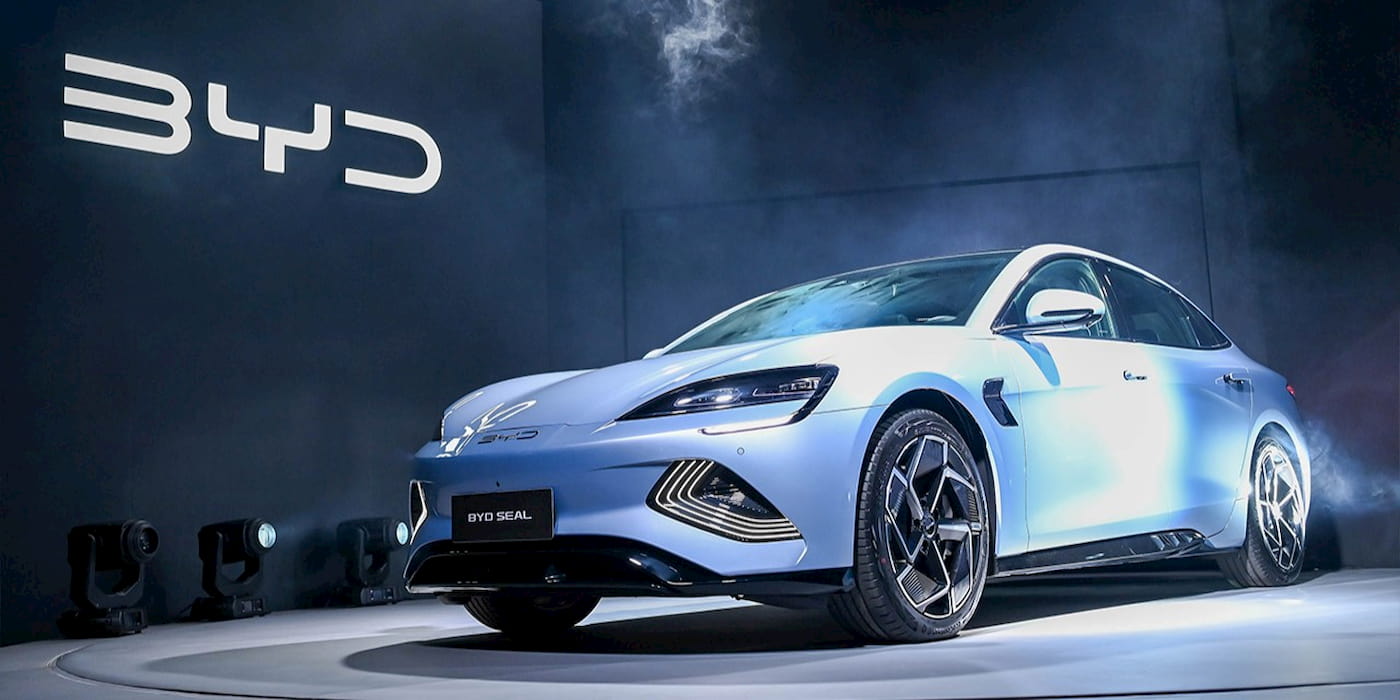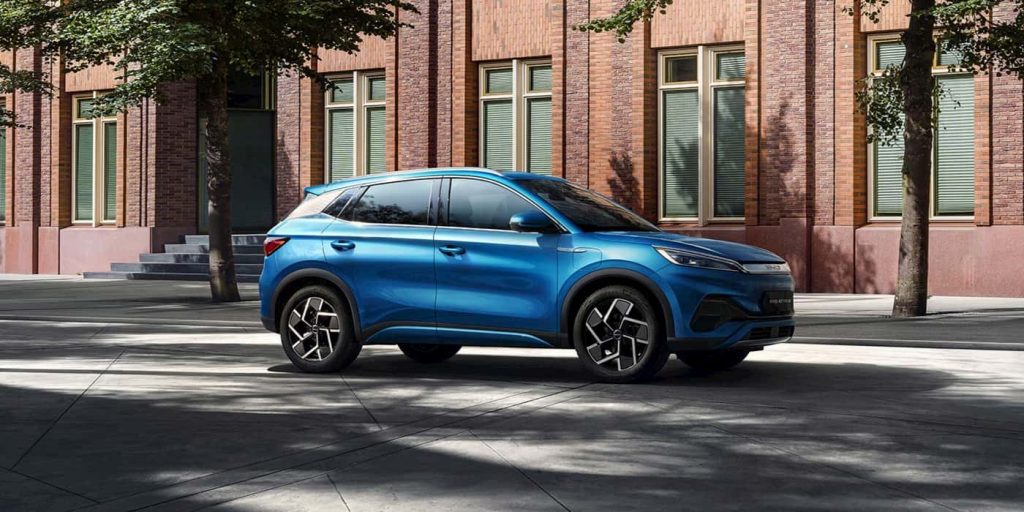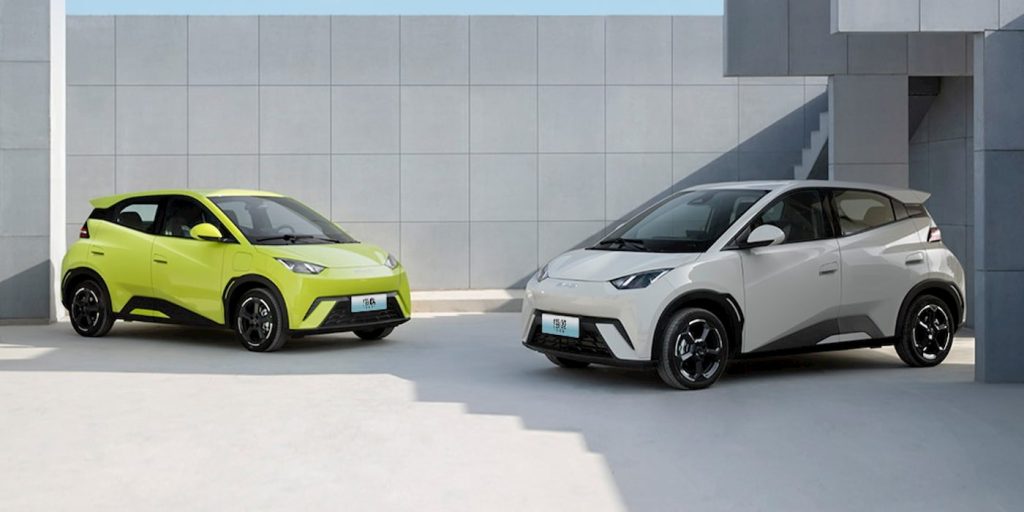
After new energy vehicles (EVs and PHEVs) crossed 48.2% last week in China, BYD’s CEO Wang Chuanfu said at this rate, 50% NEV share could happen in the next three months.
BYD chairman predicts 50% NEV share in China sooner
“The penetration rate of NEVs crossed 48.2 percent last week, and if it continues at this rate, I estimate that the penetration could cross 50 percent in the next three months,” Wang explained at the China EV 100 Forum in Beijing over the weekend.
Just a month ago, BYD’s CEO said he could see China’s NEV reaching 50% by the end of the year, according to CnEVPost.
The penetration rate could be even higher over the next three months as NEVs dominate the market, according to Wang.
About half of BYD’s sales are all-electric, while the other half are PHEVs. Wang said China’s NEV makers must embrace the industry’s shift while advancing cleaner tech.
Last year, NEVs accounted for 35% of China’s auto sales. A jump to 45% would mean an extra two million NEV sales, according to Wang.

After dominating their domestic market, Chinese NEVs are now expanding overseas. Electric vehicles pushed China past Japan to become the global auto export leader. BYD’s first car transport ship docked in Germany last month, carrying 3,000 vehicles, as it’s “just getting started” in Europe.
Meanwhile, Wang warned the industry is entering a tough stretch, and automakers need to scale and grow their brand as quickly as possible.

After launching the Qin Plus Champion Edition (DM-i model) last year, priced below 100,000 yuan ($13,900) for the first time, BYD claimed it was “directly destroying the moat of joint venture vehicles.”
Now, the automaker has several fully electric models below or close to the 100,000 yuan mark.
Electrek’s Take
A 50% NEV share within the next three months would be impressive. China’s NEV market already topped 48% share last week as buyers continue transitioning to cleaner alternatives.
BYD announced a “liberation battle” against gas-powered vehicles last month after cutting EV prices and introducing new low-cost models.
Its cheapest EV so far, the new Seagull, starts at $9,700 (69,800 yuan). The Seagull earned the nickname “Lamborghini mini,” as former Lamborghini designer Wolfgang Egger led its design.
Although BYD is known as a low-cost EV maker, it’s expanding into new segments, including luxury and mid-size SUVs. BYD launched its Yangwang U9 electric supercar last month, starting at $233,000 (1,680,000 yuan).
It also has two new mid-size electric SUVs, the Sea Lion 07 and Song L, rolling out to compete with Tesla’s best-selling Model Y.
Although BYD and Tesla are often compared, BYD sees Tesla as an important partner and wants to work with them to continue gaining market share from ICE cars.
FTC: We use income earning auto affiliate links. More.


![Finance a new EV for less: EV deals with 0% interest this September [update]](https://i0.wp.com/electrek.co/wp-content/uploads/sites/3/2024/08/Polestar-first-electric-SUV-US-1.jpeg?resize=1200,628&quality=82&strip=all&ssl=1)
![This is it: the FIRST pure electric vehicle to wear a Lamborghini badge [video]](https://i0.wp.com/electrek.co/wp-content/uploads/sites/3/2025/09/lamborghini_pwc.jpg?resize=1200,628&quality=82&strip=all&ssl=1)

![Stellantis' new EV battery tech will put it ahead of – well, EVERYONE [video]](https://i0.wp.com/electrek.co/wp-content/uploads/sites/3/2025/09/Peugeot-E-3008_MAIN.jpg?resize=1200,628&quality=82&strip=all&ssl=1)

![Yangwang U9 Xtreme cracks 300 mph to become fastest production car EVER [video]](https://i0.wp.com/electrek.co/wp-content/uploads/sites/3/2025/09/Yangwang-U9-Xtreme.jpg?resize=1200,628&quality=82&strip=all&ssl=1)




